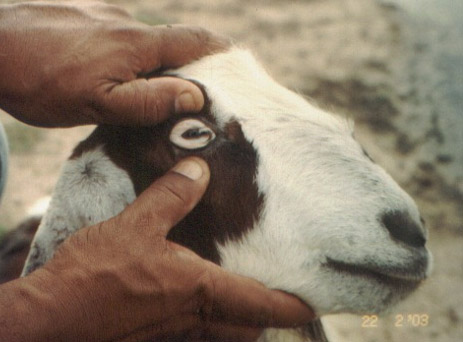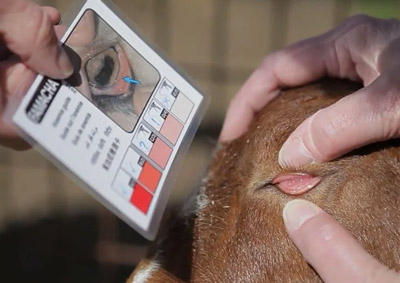Arkansas Extension Small Ruminants Blog
Contact
Dr. Dan Quadros
Asst. Professor - Small Ruminants
Phone: 501-425-4657
Fax: 501-671-2185
Email: dquadros@uada.edu
University of Arkansas System
Division of Agriculture
Cooperative Extension Service
2301 S. University Ave.
Little Rock, AR 72204
Stay Connected!
Warning: Parasite Season Begins Earlier This Year
February 28, 2023
By Dr. Dan Quadros, Small Ruminant Specialist, Assistant Professor at the University of Arkansas System Division of Agriculture, Little Rock
and Dr. Eva Wray, Parasitologist, Post-doctoral Research Associate at the University of Arkansas, Fayetteville

With a warmer winter and the return of rain, internal parasite infections have started to rise earlier in Arkansas, and the result can be disastrous to small ruminant producers.
Warmer, Wetter Spring Creates Favorable Conditions for Internal Parasites
The climate forecast, released by the National Oceanic and Atmospheric Administration (NOAA), stated that Arkansas experienced a warmer than average 2022/23 winter (10°F warmer than normal in January and February) with roughly average precipitation (after a long drought last year), and predicts a warmer, wetter spring in 2023, which creates conditions favorable for internal parasites development on pastures.
The fecal egg counts analyzed this month by the Parasitology lab at the University of Arkansas in Fayetteville have revealed levels normally seen during spring, indicating that we could have a more intense parasite season ahead of us than we have seen in recent years. With more eggs on the pastures and favorable climatic conditions for larval development earlier in the year, it could likely reflect increased parasite burdens in our small ruminants in the spring-summer.
Internal parasites are real threats to small ruminants, mainly the barber pole worm (Haemonchus contortus). Poor weight gains, reduced intake, anemia, and death are some of the deleterious effects internal parasites can cause in our small ruminants. That's why developing an effective parasite control program is essential.
Integrated parasite management practices should be used by producers aiming to help control internal parasites.
These include, but are not limited to:

- utilizing pasture management with rotational grazing,
- multi-species grazing (with cattle or equines)
- implementing target-selected treatment (Five Point Check with FAMACHA) and fecal analysis (fecal egg count diagnoses, coproculture and reduction tests)
- identifying/purchasing animals selected for parasite tolerance
- administering copper oxide wire particle boluses
- utilizing biological control (e.g., Duddingtonia flagrans, a feed-through fungus that physically eats nematode larvae on pasture before they can become infectious)
- feeding plants rich in condensed tannins
Additionally, knowing which drugs are still effective on your operation, and more importantly, which drugs are no longer working, is crucial.
In summary, producers should immediately implement as many different parasite control strategies as possible in order to effectively control internal parasite infections.
Additional Resources